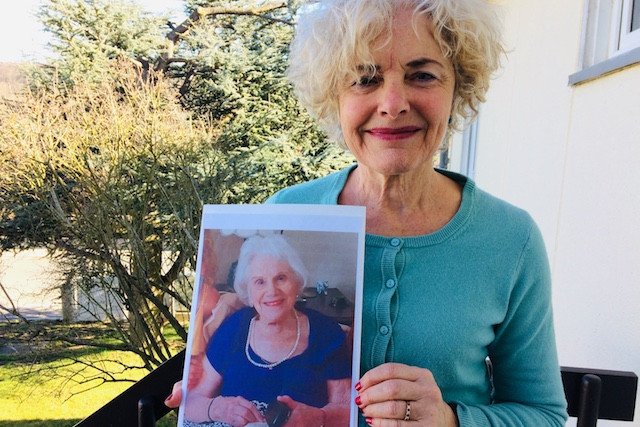Born on 24 August 1923, Angela was the firstborn of three girls to a wartime correspondent for Reuters (her father, Arthur) and a backstage dresser in a London theatre (her mother, Arlene).
They weren’t very well off, as Arthur’s work often sent him away from his wife and family, and, as was later discovered, he had another lady friend and son for whom he eventually left Arlene and her three daughters alone to fend for themselves.
Angela was brought up in a poverty-stricken but fervently Catholic environment, as her mother, having left the stage, had converted to Catholicism before marrying.
During World War II, Angela and her two sisters would very naively invite “poor, homesick” GIs, Canadians and other Allied soldiers billeted in Sussex back home “for a cup of tea”. These young men, thinking they were going to have a good time with the girls, entered Arlene’s home to be confronted at the end of the corridor with an altar lit up with candles on which stood a statue of Mary, mother of Jesus! This, most of the time, set them off laughing philosophically over a cup of tea prepared by Angela’s mum.
This was how Angela met her husband, a Polish Royal Air Force pilot. She also worked at Bletchley Park, decoding messages from the occupied territories abroad (but that’s another story).
Meanwhile, her Spitfire pilot husband was shot down and ended up in a concentration camp somewhere in Siberia. Tortured, starved, and a changed man, he finally escaped and made his way back to England (but that, too, is another story).
In 1953, back in England after the war--in between taking care of her mother (who was by then dying of breast cancer), managing a moody, volatile husband, probably with post-traumatic stress disorder, and searching for pennies down the backs of chairs to feed her first two sons--Angela gave birth to me.
Following her strict Catholic upbringing, she continued to bring into the world three more sons, making a total of six children. But in 1959, after listening to the admonishing of the midwife, Nurse Bontempo, who brought us all into the world (and who was terrified for my mother’s survival, as she came close to getting eclampsia and dying during pregnancy), Angela stopped having children.
My father suffered two accidents during my childhood, causing brain damage which changed his character dramatically, not to mention his capacity to support the family financially. So my mother, at the age of 42, went back to train as a primary school teacher and was thus able to sustain her large family.
Needless to say, I greatly admire my mother’s tenacity, her sense of humour and endurance in keeping the family and her marriage together. I believe this family cohesion and her sense of humour in times of adversity has kept her alive to this day. Obviously, she has greatly influenced my life, and I like to think I have inherited her sense of humour.
In February of this year, at the age of 95, she had two stents put into her heart. She is crippled with osteoarthritis but is still at home, very much on the ball, grandmother and great-grandmother, constantly visited by her offspring, and she entertains us still with anecdotes and memories of her life.
Originally from Brighton, UK, Stephanie Wester-Hubert worked for the European Court of Auditors (ECA) for 34 years before her retirement in 2015. With the help of her piano training at the Brussels Royal Conservatoire for Music, she founded and directed the ECA choir for 11 years, directed the vocal ensemble After Eight for 4 years, sings in the St Michel choir and has participated several times in The Really Big Chorus scratch choirs.
Do you have a woman in your life who has inspired you? In celebration of International Women’s Day, we want to hear from you. Send us a mail to [email protected] with your story and photo, or share your story on social media with the tag #myfemalerolemodel
